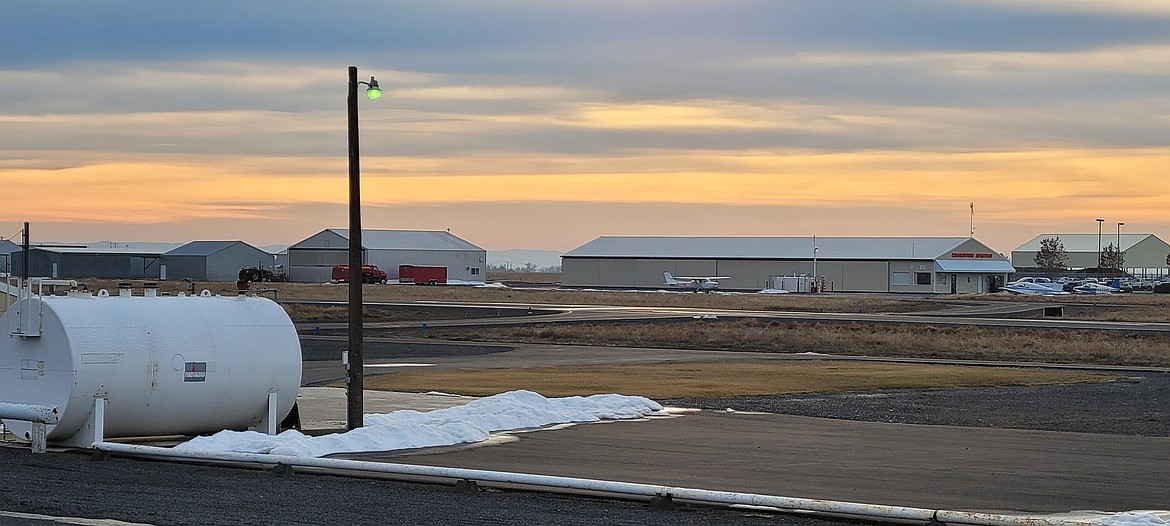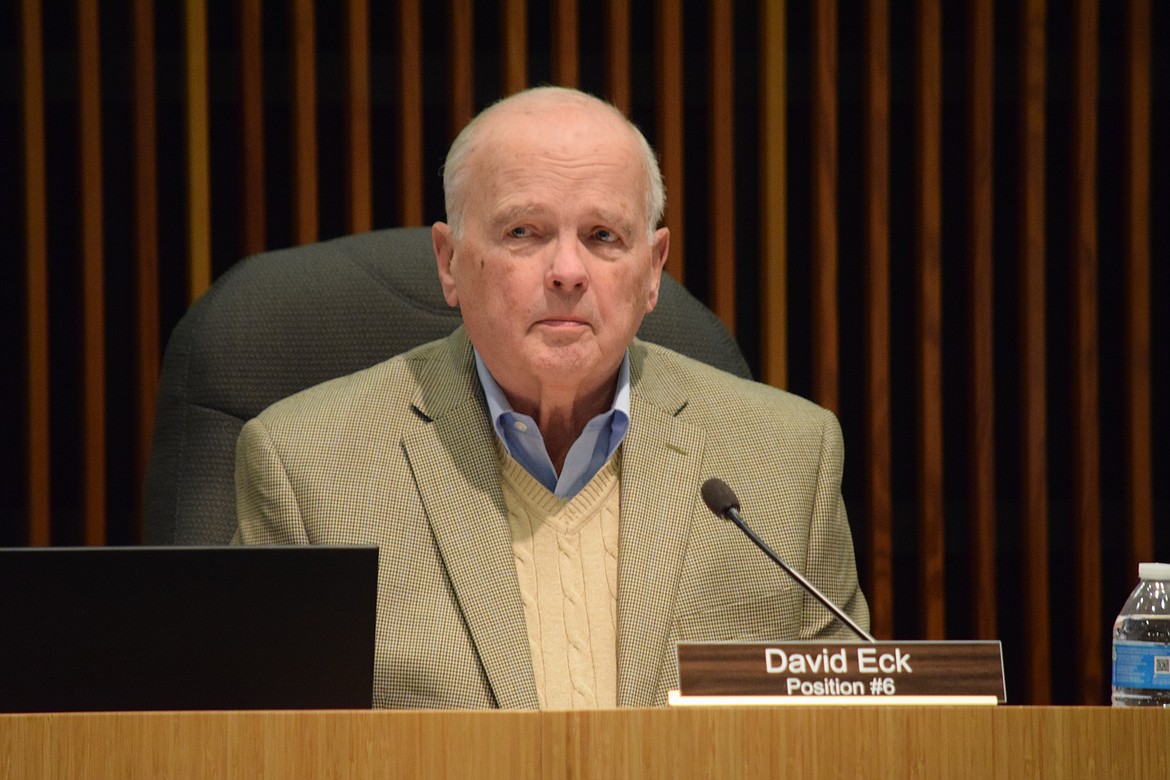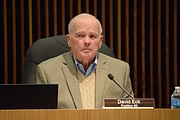ML Council delays water ordinance, new airport leases
MOSES LAKE - At a regular city council meeting on Tuesday, the Moses Lake City Council postponed discussion of interim water regulations that would have prohibited the extension or creation of new water hookups within the city's urban growth area for six months and set a goal of conserving city water use by 60% over the next five years.
"This ordinance is premature in the extreme," said Council Member David Eck when he proposed tabling consideration of the plan.
Without significant discussion of the matter, the council voted 5-2 to table the measure, with only Mayor Don Myers and Deputy Mayor Deanna Martinez voting to consider the plan.
The city is currently working to update its comprehensive water system plan, and the council has talked at previous meetings about reducing the use of drinking water for watering lawns and parks. The city is working with the Moses Lake Irrigation and Rehabilitation District to utilize a portion of the district's right to use 50,000 acre-feet of water from Moses Lake each year for irrigation purposes -- water the MLIRD currently does not use.
The council also voted to reject a recommendation from the commission overseeing the Moses Lake Municipal Airport to restructure the land leases that provide much of the airport's income. Assistant City Manager Rich Huebner said the airport commission's recommendation to cap annual lease increases to 3%, despite the most recent regional consumer price index measure of inflation reaching 8.3%, and to offer a 5% discount to any lessee who pays a year's rent upfront, meant the airport was offering below-market lease rates and the city would have to do a market study of airport leases in order to justify that legally.
Huebner told council members that uncapped leases would bring in $33,000 per year to fund airport operations, while a 3% would limit annual airport income to $31,000 and if all current leaseholders paid up front, the airport would only receive $29,000.
"That's a $3,500 loss," he said. "We can make property available for less than market value, but the city must approve that.”
Huebner also said the proposed airport lease did not require automobile and liability insurance for leaseholders, and that put the city at risk.
However, Airport Commission President Rod Richeson told council members the insurance provisions are in-line with common industry practice, given the law already requires people to insure their cars and all will have insurance on their buildings.
"Anyone with a lease already has liability insurance," he said. "They own the building, and are just renting the dirt to put their property on."
Richeson also noted there is no requirement in federal or state law for pilots and aircraft owners to insure their planes.
"We all do it," he said. "We do not want any additional insurance requirements."
Richeson, who said they consulted with an attorney with the Aircraft Owners and Pilots Association to help craft the new leases, said the goal of having below-market leases for land is to encourage more people to lease plots at the airport and build new buildings. The airport is not only a place for recreational pilots to house their planes, he explained, but also a place where a number of business owners make their livings and, citing state figures, contribute up to $8 million in additional economic activity to Moses Lake every year.
"It's a very important asset to the community," Richeson said.
Huebner said a proper market study could be done in about 30 days. Richeson wanted to make sure that the study would focus on similar municipal airports that lease land and not buildings.
"Make sure we do apples to apples," he advised.
Council members, however, were concerned the airport should pay for itself, and not be dependent on city coffers for additional funding.
"We're in support of making sure it's self-funding," Myers said.
Charles H. Featherstone can be reached at cfeatherstone@columbiabasinherald.com.





